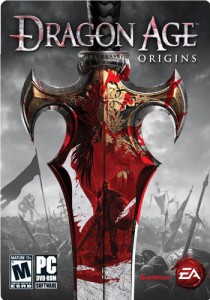When I was a kid I was told that role-playing games were the first ominous step toward declaring allegiance to Satan himself, and, being young and naïve, I embraced the whole sordid tale. Instead of playing Dungeons and Dragons or Baldur’s Gate, I spent a lot of time outside having rollicking adventures as an audacious Forestman or leader of an elite spy organization. Indoors, I developed complex tales for all of my favorite Lego themes, naming the minifigs, developing their characters, and orchestrating dramatic situations of bittersweet victory and self-sacrifice.

The only issue with such games had to do with including others. My best friend Jason and brother Mark shared (or tolerated) my storytelling style, but other visitors rarely seemed to “get” it. There were certain things that just couldn’t be done and it was impossibly frustrating for my child self to watch as guests broke one unwritten rule after another. I got so tired of people cheating at Throwbots that I finally decided to write down exactly how the game should be played, including custom scoresheets. In the interest of the Greater Good, I pretended the rules came from Lego itself so my friends would adhere to them. After that, Throwbots was one game I could play with any willing visitor and each game was both enjoyable and fair—no arguments over whether or not a shot “counted.”

Looking back on that time, I realized that I independently followed a similar path to roleplaying paragons like E. Gary Gygax. What I did outside and with Lego was create my own RPGs (and I managed not in invite the Lord of the Flies into my heart either, go figure). Systems like DnD are the result of greater minds than my own laying down a rule framework so that everybody can enjoy their part in the story—and take damage when they’re bloody supposed to.
Perhaps because of my background, I tend to get very immersed when I play RPG games like Dragon Age. In these cases, the framework has already been laid out, giving me a context in which to develop a character. I enjoy taking the role-playing somewhat seriously; for me, the choices offered by the game are not mine to make but opportunities to tell the character’s personal narrative.
